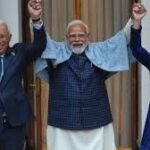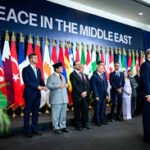The conflict in Sudan has escalated into a full-blown humanitarian catastrophe, drawing the attention and concern of the international community. The violence, which primarily pits the Sudanese Armed Forces (SAF) against the paramilitary Rapid Support Forces (RSF), has led to widespread devastation in the country. Over the past few months, the conflict has intensified, and its repercussions have been felt beyond Sudan’s borders, pushing neighboring countries to the brink of instability and exacerbating the humanitarian crisis.
The roots of the current crisis can be traced back to deep-seated political and military rivalries that followed the ousting of longtime autocrat Omar al-Bashir in 2019. Bashir’s removal was a result of a popular uprising, but his departure left a power vacuum that the military, political factions, and various militia groups scrambled to fill. A fragile power-sharing agreement was brokered between civilian leaders and the military, promising a transition to democratic rule. However, tensions remained high, especially between the two dominant factions within the military: the SAF, led by General Abdel Fattah al-Burhan, and the RSF, under the command of Mohamed Hamdan Dagalo, widely known as Hemeti.
These tensions erupted into open conflict in April 2023, resulting in violent clashes in the capital, Khartoum, and other major cities. As the fighting continued, Sudan descended into chaos, with both sides committing atrocities against civilians, including indiscriminate bombings, looting, and the destruction of essential infrastructure. The healthcare system has been particularly impacted, with hospitals targeted or rendered non-functional due to the lack of medical supplies, electricity, and safe access for healthcare workers. The violence has also displaced millions, both internally and across borders into neighboring countries such as Chad, South Sudan, and Egypt, straining resources and exacerbating regional instability.
The worsening situation in Sudan has prompted calls for intervention from the international community. However, the response has been fragmented and, in many cases, insufficient to address the scale of the crisis. Regional bodies such as the African Union (AU) and the Intergovernmental Authority on Development (IGAD) have taken the lead in attempting to broker peace between the warring factions. Both organizations have pushed for ceasefires and negotiations, but these efforts have repeatedly failed, as neither side appears willing to compromise. The AU, in particular, has expressed frustration over the lack of progress, with its Peace and Security Council warning that the conflict could further destabilize the Horn of Africa, already beset by security challenges.
Meanwhile, the United Nations (UN) has been active in addressing the humanitarian fallout from the conflict. The UN’s Office for the Coordination of Humanitarian Affairs (OCHA) has reported that more than half of Sudan’s population, over 24 million people, now requires humanitarian assistance. The conflict has severely disrupted agricultural production, leading to food shortages and skyrocketing prices. The World Food Programme (WFP) has launched emergency food aid operations, but it has been difficult to reach those in need due to ongoing fighting and attacks on aid convoys. Humanitarian workers themselves have become targets, with several killed in crossfire, further hampering relief efforts.
At the same time, the UN Security Council has faced criticism for its inability to take decisive action to end the violence. While the council has condemned the fighting and called for an immediate ceasefire, deep divisions among its permanent members—particularly the United States, China, and Russia—have hindered the adoption of a unified approach. These divisions reflect broader geopolitical rivalries that often play out in international crises, with different powers supporting different factions within Sudan. This lack of consensus has weakened the UN’s influence in shaping a durable peace process and has frustrated efforts to impose sanctions or other punitive measures against those responsible for the violence.
The involvement of external actors has further complicated the conflict. Sudan’s strategic location and vast natural resources, particularly oil, have long made it a point of interest for regional and global powers. Both Egypt and Saudi Arabia, for instance, have maintained close ties with the SAF, seeing it as a bulwark against the spread of political Islam and instability in the region. On the other hand, the United Arab Emirates (UAE) has cultivated a relationship with Hemeti’s RSF, which has provided mercenaries to support UAE-led operations in Yemen. These competing interests have made it difficult for external powers to coordinate their efforts to stop the fighting, as each state prioritizes its own strategic goals over collective peacebuilding efforts.
Further complicating the situation is the role of armed groups and militias, many of which have ethnic or tribal affiliations. In regions such as Darfur, where the RSF originated, old grievances and historical conflicts have resurfaced, leading to widespread violence and ethnic cleansing. The international community’s past failures in Darfur, where a conflict that began in 2003 led to the deaths of hundreds of thousands of people, continue to haunt the present-day crisis. The RSF has been accused of using similar tactics in the current conflict, further inflaming tensions and driving civilians to flee in large numbers.
The international community, while vocal in its condemnation of the violence, has struggled to implement meaningful solutions to the crisis. Western powers, including the United States and the European Union, have imposed targeted sanctions on Sudanese military leaders and entities associated with the conflict. However, these measures have had limited impact, as both the SAF and RSF have access to financial and military support from regional allies. The United States, in particular, has faced criticism for not doing enough to pressure regional powers like Egypt and the UAE to withdraw their support for the warring factions.
Diplomatic efforts by the international community have also been undermined by the lack of a clear roadmap for peace. Various initiatives, including ceasefire agreements and peace talks, have collapsed amid accusations of bad faith and violations by both sides. The international community has called for a comprehensive peace process that includes not only the SAF and RSF but also civil society groups, political parties, and other stakeholders. However, achieving such inclusivity has proven difficult, especially given the deep mistrust between different factions and the lack of a neutral mediator capable of bringing all parties to the negotiating table.
The humanitarian crisis in Sudan continues to worsen, with little relief in sight. Refugees and internally displaced persons face dire conditions in overcrowded camps, lacking access to basic necessities such as food, clean water, and healthcare. The international aid response has been woefully underfunded, with the UN warning that it will be forced to scale back its operations if additional funding is not secured. Furthermore, the conflict has disrupted the delivery of essential services, such as education and healthcare, which will have long-lasting effects on Sudan’s future development and stability.
Despite the grim outlook, there remains hope that a peaceful resolution to the conflict can be achieved. Some observers have pointed to the possibility of regional mediation efforts, led by countries such as Ethiopia or South Africa, which have experience in brokering peace in similar conflicts. Additionally, pressure from the international community, including the imposition of arms embargoes and the threat of further sanctions, could force the warring factions to the negotiating table. However, any successful resolution will require sustained engagement from the international community, as well as a commitment to addressing the underlying political, economic, and social grievances that have fueled the conflict.
In conclusion, the worsening conflict in Sudan presents a complex and multifaceted challenge for the international community. While efforts have been made to address the violence and its humanitarian consequences, much more needs to be done to bring about a lasting peace. This will require not only diplomatic interventions but also significant financial and logistical support to rebuild the country and provide for the millions of people affected by the conflict. The stakes are high, not only for Sudan but also for the broader region, as continued instability could lead to further displacement, radicalization, and cross-border conflict. It is imperative that the international community acts swiftly and decisively to prevent Sudan from sliding further into chaos.




Leave a Reply